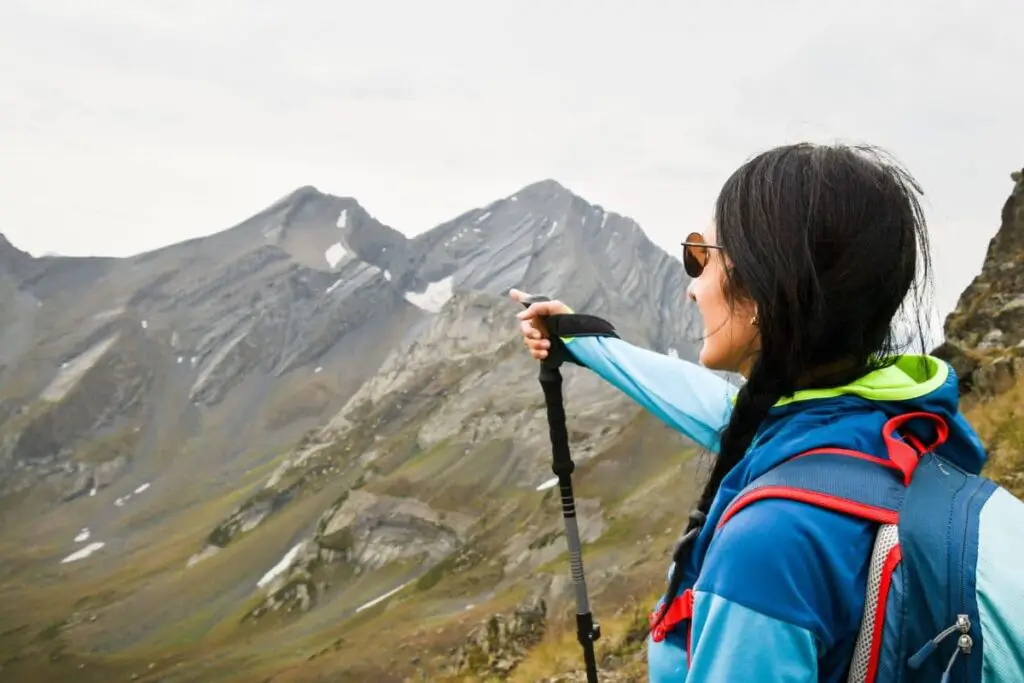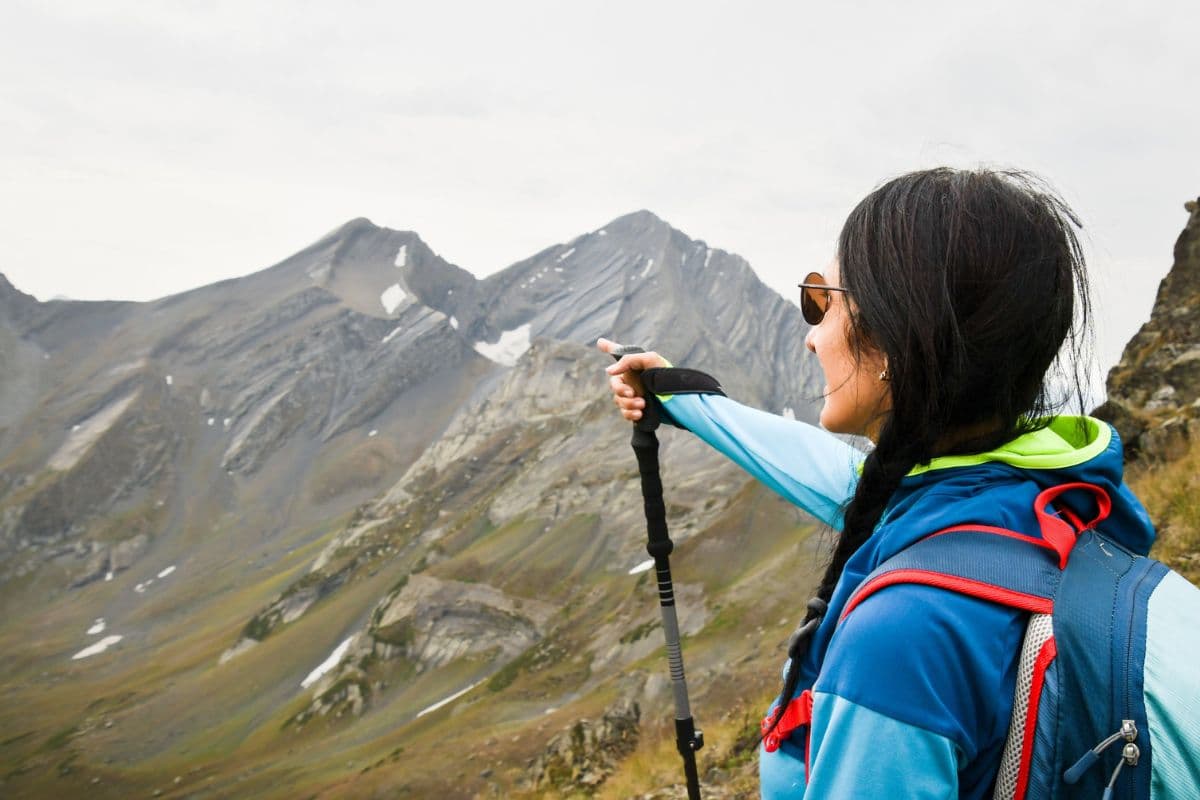More than two years into the pandemic, travel restrictions have finally slowed, and countries are slowly opening their doors to local and foreign tourists. But still, with the lingering threat of COVID-19, explorers could no longer wait for friends and family to be ready for a post-pandemic adventure. Solo trips are now becoming a popular choice.
Solo travel isn’t weird at all; it has become a trend in recent years. According to a top travel site, Booking.com, only 14% of travelers would willingly go solo during the pre-pandemic period. Still, in mid-2021, when restrictions started to loosen up, that number nearly doubled to 23%.
This article will discuss the stigma attached to solo traveling and how to overcome it. If you’re still hesitant about going solo, this article might give you the push you need.

Is It Weird To Travel Alone?
Traveling solo can be terrifying and overwhelming at the same time but not altogether weird. Many seasoned solo travelers say that traveling alone gives them confidence and fulfillment when they can take on tasks in a foreign place by themselves.
Wanderers describe solo travel as both limiting and limitless. Sure, it’s challenging to take a dramatic pose without someone to take a photo of you—that’s why a genius invented the selfie stick! However, traveling solo also allows you to be carefree with your time and itinerary since you don’t always need to adjust to somebody else’s schedule.
When you see something extraordinary, it’s almost automatic to call someone else’s attention to share the sight. Sometimes you’ll find yourself reacting to things and wanting to share the experience. It’s perfectly normal when traveling solo—most of the time, you laugh it out—and shrug it off.
When you’re new to solo travel, taking selfies in public places might seem slightly awkward but not weird. Everyone does that, and nobody gives a hoot. You’ll eventually get used to it and even realize you’re slowly becoming a pro photographer over time with all those repeated timer shots to get a perfect view.
Sometimes, when you’re visiting a romantic spot, it might feel a little bit weird coming alone, especially when everyone else comes as a couple and goes mushy around you. It’s good that local authorities now forbid leaving love locks in Paris. You can now visit Pont des Arts as a famous bridge, not a love nest.
Many things might feel weird, especially in a foreign place, but they are perfectly normal. Eating alone, riding the train by yourself, checking in at a hotel without a companion—they’re all things other travelers like you also do.
Traveling alone is fun, exciting, and full of discoveries not about a place or its people but, most importantly, about yourself. You’ll be surprised to discover parts of your personality you’ve never known you had—before you started going solo.
Why Is There a Stigma in Traveling Solo?
Here are some of the reasons why there is a stigma in traveling solo:
- Some people consider solo traveling dangerous—especially for women. Many still believe that women’s solo adventures should be limited to safe destinations—if not entirely avoided.
- While many countries are tourist-friendly, some nations are unwelcoming—even hostile—to foreigners, much more to women. Female travelers are more prone to harassment and abuse than their male counterparts.
- There is safety in numbers. Traveling with someone or a group ensures that somebody has your back, especially in emergencies. Also, two heads are better than one in making decisions and plotting activities.
- Traveling alone is expensive. When you travel in groups, you have other people to share your travel costs. Sometimes you can’t take advantage of travel tours as they require a minimum number of goers.
- Foreign language is a barrier that will even make you feel more isolated.
- People believe that by traveling alone—people will think they have no one to travel with them. They think that something will seem out of place when people encounter solitary travelers.
- Some people believe that solo travel is only for people in their 20s. However, anyone can hit the road on their own without worrying about their age. You can travel alone even if you’re in your 30s or more. [Is 30 Too Old to Start Traveling By Yourself?]
There are many other reasons why some people have negative and sometimes unfair beliefs about solo travel. These reasons may not always be valid, and there are ways you can avoid them as well. The next part will explore ways to overcome these stigmas.
How Can I Overcome the Stigma of Solo Travel?
Don’t Overthink Potential Hazards
Please don’t overwhelm yourself with whether or not it will be a successful solo trip.
Most of the time, we get ahead of ourselves and think of the most bizarre what-ifs that would eventually make us more nervous. What if I get lost? What if I have an accident? What if I get robbed? Overthinking ruins the beauty of solo trips, and you should avoid it at all costs. Stop imagining worst-case scenarios, as they will only discourage you.
Instead of dwelling on unfortunate things that could happen, focus on all the wonderful and exciting adventures ahead of you. This independent venture will be an experience of a lifetime and maybe the beginning of many firsts. Focus your energy on a positive outlook and direct your mindset to what goals you wish to achieve on your trip.
Remember that having a positive state of mind means everything when you’re traveling solo. It allows you to be calm and choose wise decisions that are important in making your trip successful.
Let’s consider an example. Suppose you want to travel to Sweden. You can think about the very rare situations that you may encounter. Or you can picture the great time you’ll have walking alone on the streets of Sweden without any trouble. [Is Sweden Safe to Walk Alone at Night? Solo Travel Tips]
Plan Ahead Carefully for Your Solo Adventure
The best way to avoid mishaps is to plan before you travel. Nothing beats a well-planned adventure. Although many say that being random and going with the flow sparks more fun, first-time solo travelers should start with a carefully prepared schedule and itinerary.
Reading blog posts of real people’s experiences in doing solo travel is one of the best ways to help you plan your trip. You can get ideas and insights from their journey and even some tips and warnings. Their experience may even assure and encourage you.
I recommend booking your accommodation early to take advantage of cheap deals and secure the best spot in your target destination. Choosing a hotel close to busy tourist spots is convenient and a plus in safety. Once you ensure the perfect place to stay, almost everything else follows.
Research Your Destination In-Depth
This tip is probably a no-brainer. You can avoid many unfortunate incidents when you thoroughly research your travel destination.
Checking for cultural sensitivities is essential to avoid being unintentionally rude or disrespectful. You’ll find out about tourist experiences in a particular place through research. It would be best to ask these essential questions:
- Does the area host a highly conservative community?
- Are they hostile toward foreign nationals?
- Are there strict behavioral norms?
If you consider these potential issues carefully—you will have a safer and more enjoyable traveling experience.
Research saves you the hassle of re-booking or canceling your trip. Aside from cultural sensitivities, you should also look out for the kind of weather, health concerns, and political issues of your chosen destination. You don’t want to land in a city with a disease outbreak or one that’s about to wage war.
When traveling to a place with a foreign language, make sure to remember essential words to help you get through trivial situations. Otherwise, many free apps could translate for you, so ensure you’ve downloaded these before embarking on your quest. Offline apps are the best choice since you can’t be sure when there’s internet all the time.
Remember that you are more vulnerable when traveling alone. Conforming to a place’s culture and way of life is not always restricting or limiting. Many tourists say that participating in the local’s daily activities and mingling with them is one of the experiences they will never forget.
Have a Contingency Plan in Place When You Travel Alone
Having a Plan B never hurt anybody.
Let’s start with your accommodation. Although you have successfully booked the best place, taking note of the second best spot is a good idea in case of unforeseen events like double bookings. Having a Plan B will save you from the risk of spending time on the streets. Keep in mind the different guest houses in the vicinity.
Of course, it is always an intelligent suggestion to familiarize yourself with the area. Take note of the nearest hospital, police station, drugstore, bank, or even the embassy, in case of emergencies when you need these services. It’s also a good choice if your hotel is near these establishments.
Never put all your cash in one location. Spread your money so you’ll still have the resources to get by if anything happens, like getting robbed or losing your bags. Never bring all your money when going outdoors, like on a hike or a beach trip, as these activities are “high risk” when losing things. If there’s a nearby bank, only withdraw a day’s expense.
Send Updates to Friends or Loved Ones Regularly
Yes, maybe you chose to go on a solo trip to be alone and away from the world. But this last tip is crucial, especially for a first-timer.
Always send regular updates to a trusted someone. It may be your mom, sister, partner, or best friend. As long as one person knows your whereabouts, you have the assurance that someone has your back, at least from afar.
Let someone know your schedule and itinerary or any deviation from it. If you’re hiking, you might lose signal, and your loved ones may wonder why you aren’t responding to texts or calls. Tell someone if you’ll be gone for a few hours or an entire day, so they will know when you’ve been out for far too long.
It is vitally important that someone knows where you’re staying as well. So if any emergency arises, someone knows where to reach you.
One tip you can also find helpful is telling someone if you notice any suspicious behavior from people around you. Does the guy next door frequently stare at you unusually long? Do you always see suspicious men or women gathering outside your hotel? Having a friend or loved one to whom you can express your fears will comfort you—and keep a record of your experiences.
Savor the Experience of Solitary Travel
Don’t be too caught up with the do’s and don’t of solo travel. Once you decide to do it, ensure you are a hundred percent committed—Make it a point to make every moment count.
You’ve planned, researched your destination, and even made a contingency plan. The next thing to do is enjoy what you have put together for yourself and what the place has to offer. If you fail to savor the experience, your adventure wouldn’t be so meaningful.
Solo travel can be liberating. Allow yourself to learn new things and make a few mistakes. Travel molds your perspective and changes you in ways you could not have imagined. Research shows that people who travel are 7% happier than those who rarely do. If this isn’t enough motivation for you, I don’t know what is.
than those who rarely do. If this isn’t enough motivation for you, I don’t know what is.
Be Confident and Open to New Experiences
When you travel alone, you have the opportunity to reinvent yourself. Sometimes we get caught in particular roles and patterns, and those close to us keep us from exploring new experiences.
When you solo travel—you can be anyone you wish to be! This situation presents some incredible opportunities to grow as a person. Traveling alone also allows you the best chance to meet new people and forge new relationships—get out of your comfort zone and become who you always wanted to be!
Final Thoughts
Solo travel can be scary; sometimes, doing stuff alone in a new place may feel weird. Still, you’ll never know when you’re ready for something unless you go and do it.
Undoubtedly, safety is a top priority. Travel providers are now stepping up to deliver safe and fun services from transport to accommodation to activities. With the help of the internet, it is now even easier to make fool-proof itineraries.
Although solo travel is not an undertaking that everyone can do as a hobby, it is an adventure that everyone must try at least once in their lifetime.

